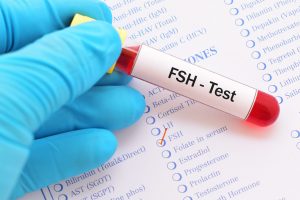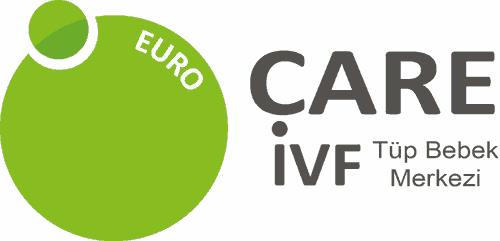 Originally used for the egg quantity assessment in fertility treatments, FSH is closely related to a woman’s fertility potential. Secreted by the anterior pituitary gland (a small, oval-shaped gland located on the underside of the brain), FSH is essential to the development and function of women’s ovaries.
Originally used for the egg quantity assessment in fertility treatments, FSH is closely related to a woman’s fertility potential. Secreted by the anterior pituitary gland (a small, oval-shaped gland located on the underside of the brain), FSH is essential to the development and function of women’s ovaries.
Since it’s so important for conception, FSH is surrounded by a lot of misconceptions, which make it hard to make well-informed decisions about your fertility. Here are some common myths about FSH and how it affects fertility.
FSH is an important reproductive hormone
True: Follicle-stimulating hormone (FSH) is one of the main reproductive hormones in females which acts on the ovarian follicles. In synergy with luteinizing hormone (LH), FSH encourages the growth and development of immature eggs (also called oocytes) in the ovaries by stimulating the division of granulosa cells that surround and nurture the oocyte in the follicle (fluid-filled sacs where eggs grow).
As ovarian follicles continue to grow, they become increasingly sensitive to and ultimately dependent on the presence of LH for maturation and ultimately release from the ovaries. Thanks to the complementary action of FSH and LH, each month a woman releases an egg for fertilisation (around day 14-18 of her menstrual cycle).
In cyclic females, FSH and LH also stimulate oestradiol (E2) and progesterone (PROG) production, which prepares the female body for a potential pregnancy. These hormones aid the thickening of the uterine lining so that the uterus (womb) can accept a fertilised egg (embryo) and provide a nurturing environment for its growth until birth.
FSH is linked to ovarian aging
True: There’s a strong correlation between a woman’s egg count and her FSH level. If there are plenty of follicles in your ovaries, you won’t need much FSH to induce normal ovulation. However, if you have few follicles, your body will need to release a higher concentration of FSH to initiate follicular growth. Higher-than-normal FSH levels, therefore, mean that there are fewer egg-containing follicles, whereas lower levels indicate that your ovarian reserve is high.
FSH level should be tested at the start of your menstrual cycle (which is day 3 of your period) as this is the time when the hormone is released from the brain. The day-3 test will provide information on how much effort your body puts to make ovulation occur.
FSH & ovarian reserve
False: Ovarian reserve indicates the quantity and quality of your eggs, whereas FSH is an indicator of their quantity (egg count). Because of the tendency to fluctuate throughout the menstrual cycle, FSH isn’t even a very good indicator of egg quantity either. To get a clear picture of your egg supply, it’s important to take a repeat FSH test as well as AMH (anti-Mullerian hormone) blood test and ultrasound scan.
My FSH level is normal, so it means that I have plenty of good-quality eggs.
False: As we already mentioned, FSH levels fluctuate all the time. If your first test came back normal, but your second test showed that your FSH level is abnormal, you should get tested again to confirm the result from the previous tests.
Sometimes, high oestradiol levels can suppress FSH production, giving a false impression that your FSH is normal. Once a high level has been established, it means your FSH is elevated. If the oestradiol level is high but FSH is normal again, it means that your egg supply is scarce. Normal levels for both FSH and oestradiol show that you may have a good number of eggs (other factors need to be taken into account as well).
I am under 35 years of age and my FSH is high. Should I try to conceive naturally?
It depends: If you’re young but you have a high FSH level, you should keep trying the natural way for at least 12 months. If you can’t get pregnant after this time, you should consult a fertility specialist who will arrange various diagnostic tests to find out the cause of your problem. You may be recommended for IVF treatment because you probably still have good-quality eggs, which is the main factor for successful fertilisation and implantation.
If you have low-quality eggs, there are some simple ways to improve egg quality. However, if you’ve gone through early menopause, egg/embryo donation may be a better option for you.
My FSH level is high and I can’t conceive naturally. Should I get fertility treatment?
Yes: If you’re over the age of 35, it’s likely that your eggs are of lower quality, which means that IVF with your own eggs is less likely to be successful. If the prognosis for successful treatment is not favourable, we may advise you to try IVF with donor eggs/embryos. With success rates as high as 80% per cycle, egg donor IVF is the most successful infertility treatments used in a wide range of situations.
FSH predicts success in IVF treatments
False: There are multiple factors that we take into account when assessing your chances of IVF success, including age, medical history, hormone profile, results from previous treatments, lifestyle, presence of male infertility factor. FSH test results help us decide on the best course of treatment for you and of medication protocol that suits your needs. For example, if you’re under 35 but have a higher-than-normal level of FSH hormone, we may prescribe you higher doses of stimulation medication. Therefore, hormones provide guidance and direction for creating highly-customised treatment plans.
FSH in the form of medication is also used in IVF cycles to help the development of multiple eggs in female patients (if the patient is young and has a good ovarian reserve).FSH injections are most commonly used in combination with an agonist to prepare you for the egg retrieval day. When the ultrasound scan shows that there are enough follicles of appropriate size, a ‘trigger’ injection is given to stimulate ovulation. The doctor will then collect your eggs using an ultrasound-guided aspiration method.
Navigate your fertility journey with the EuroCARE IVF!
FSH can be best understood with a simple blood test and in the context of age along with other tests, like AMH blood test and antral follicle count (AFC) ultrasound scan.
Always talk to a fertility specialist to help you understand your test results and to help you decode your own fertility. Never make any major lifestyle changes, do not try herbs or supplements, and do not engage in experimental treatments without prior medical consultation and proper evaluation by a specialist.
If you want to learn more about fertility testing and treatment options, schedule a FREE video consultation with our expert fertility team and get the information you need to make well-informed decisions about your health and future fertility!
